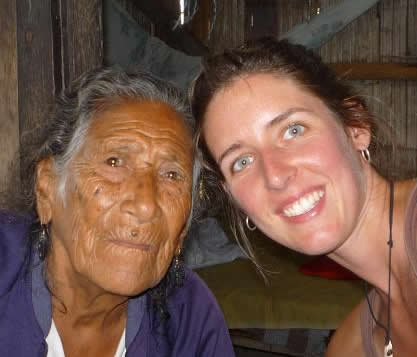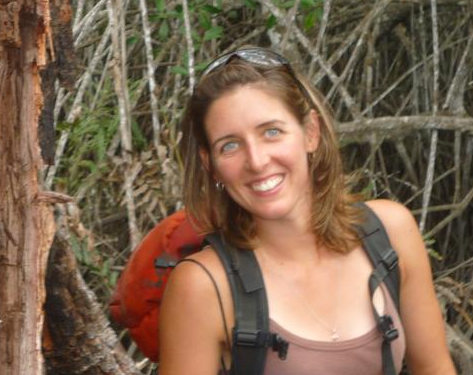Profile: Tiffanie Rainville
 |
 |
Climate change is increasing the vulnerability of Ecuador’s coastal ecosystems and threatening local livelihoods. Tiffanie’s research focussed on traditional ecological knowledge and perceptions of mangrove ecosystems, the threat of climate change, and historical environmental change. A bottom-up case study approach was used in two Ecuadorian coastal communities, with community members’ deep knowledge base informing the analysis of resources and vulnerabilities. Tiffanie’s research supported by the Robin Rigby Trust built on her previous work in Ecuador when she spent five months with an environmental NGO, Fundacion Rescate de los Bosques Tropicales.
Tiffanie’s research
formed the basis for her Master of Environmental Studies degree from Dalhousie.
Her 2010 thesis was titled “Climate Change in Ecuador’s Coastal Communities
and Mangrove Ecosystems: Local Knowledge, Perceptions, and Priorities.” Her
partner organization was the Coordinadora Nacional para la Defensa del Ecosistema
Maglar (C-CONDEM).
“My field research season in Ecuador was a truly unforgettable experience. The opportunity to work in two different coastal communities was so special and caused immense personal and professional growth. I was able to further improve my Spanish, my interviewing skills, my confidence in conducting research, my critical thinking skills, and am now more capable of putting theoretical knowledge into practice. I was also blessed by the friendship of many amazing Ecuadorians."
From 2011-18,
Tiffanie worked on the Amazon Fish for Food project in the Bolivian Amazon
with the Canadian NGO World Fisheries Trust (WFT) and several local institutions
(FAUNAGUA, AGUA SUSTENTABLE, IMG, CEPAC, CIDRE). This work focused on small-scale
fisheries and fish
farming, and led to reduced poverty and greater food security.
Following this,
Tiffanie worked for the International Development Research Center to synthesize
and communicate lessons learned from the 9-year Canadian International Food
Security Research Fund. She then took on the role of International Development
Project Advisor with Global Affairs Canada, working on the Environment and
Climate Action team.
Current Location (2020): Ottawa.
Current Activity:I have been working for Global Affairs Canada for the past
two years in Ottawa with the Environment and Climate Action Unit of the Partnerships
for Development Innovation Branch (Development Stream). I work as a Senior
International Development Project Advisor and manage projects from Latin America
and Africa with teams implementing projects focused on Climate Smart Agriculture
and Gender Equality.I am currently on maternity leave with my little six-month-old
son Camilo.
RRT Value: My
Masters research in Ecuador opened the door to delve into qualitative research
for the first time and move beyond purely biological research. It gave me
the opportunity to work with fishers and understand their points of view in
a more meaningful way as the RRT grant allowed me to spend time living alongside
them for several months. Together with key members of the community, we organized
a local running race and built a community fence around the community center,
which helped me feel like I was contributing to people’s lives and not only
there doing research. I also realized that immersing myself in the communities
was incredibly beneficial to me as a person, and brought value to the research
itself in making it more relevant to local needs.
I learned how important it is to be adaptable and respectful of local priorities
(even when that changes research plans).This experience with coastal fishers
directly contributed to me securing a job as International Project Director
with the Canadian NGO World Fisheries Trust from 2011-2018 working on the
Amazon Fish for Food project in Bolivia. This project reduced poverty through
fisheries, fish farming, and increased food security. Following this project,
I worked for the International Development Research Center and then Global
Affairs Canada..
Links:
Rainville
First Report
Rainville Final
Report
Rainville MES Thesis